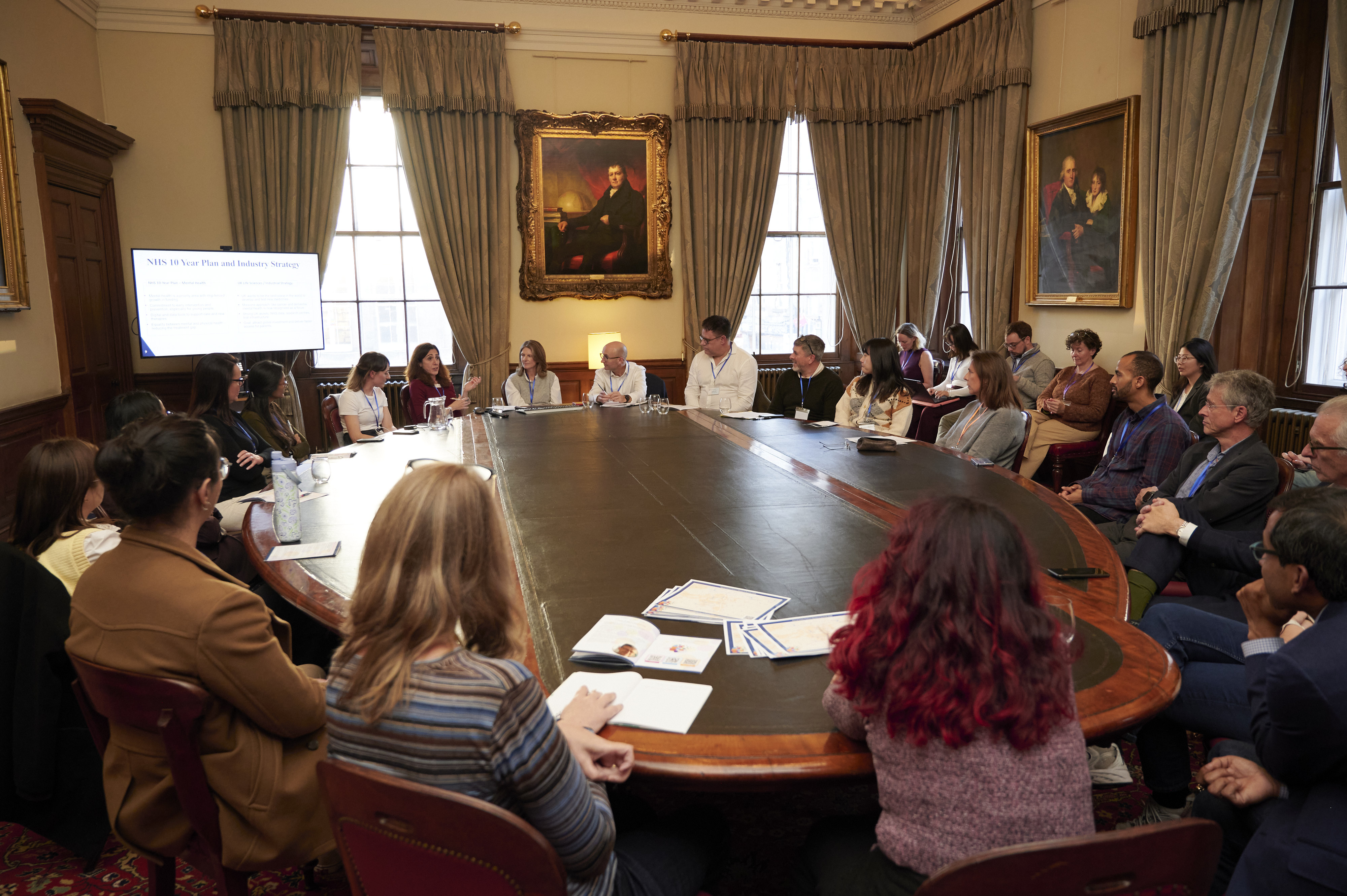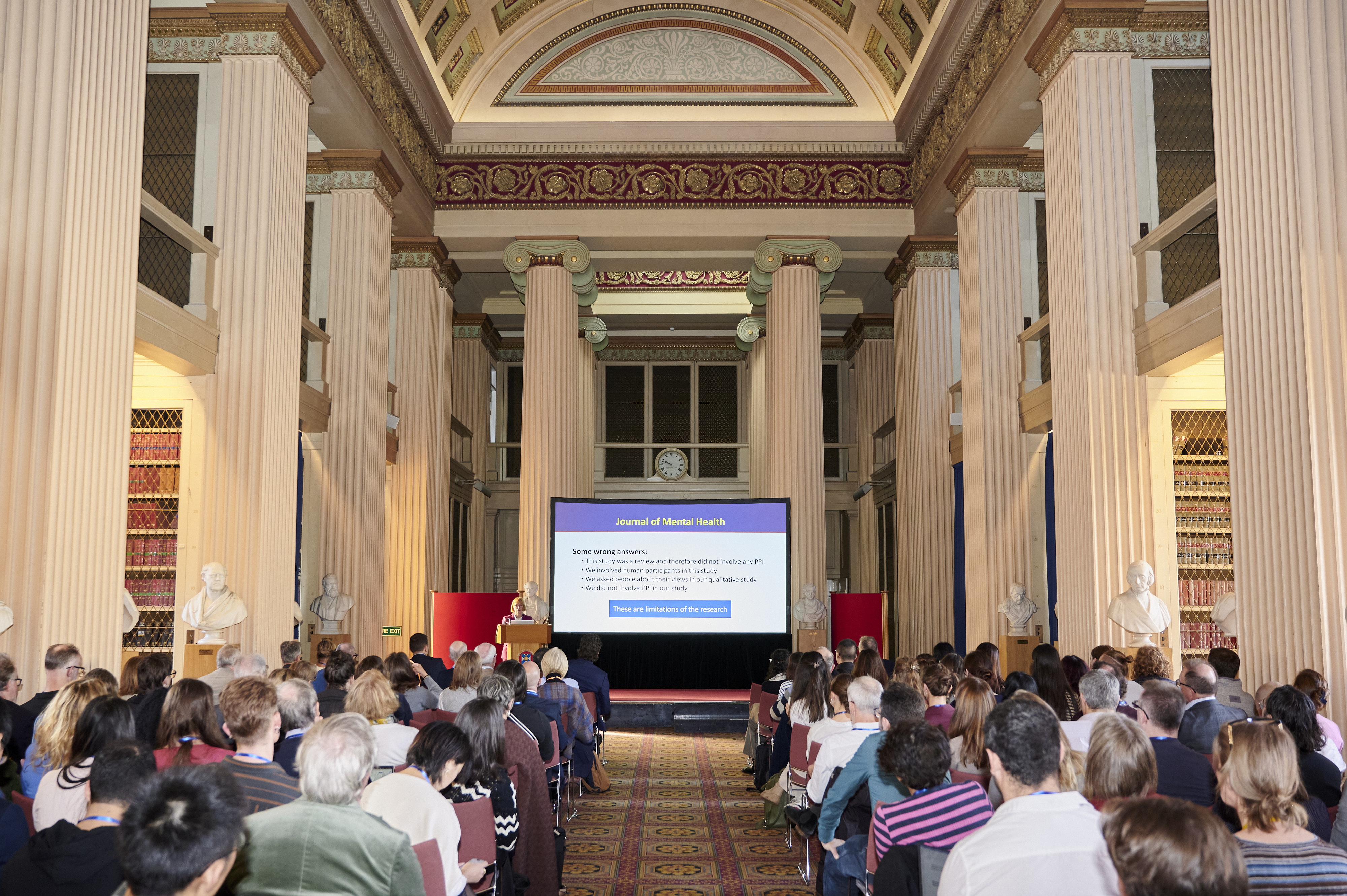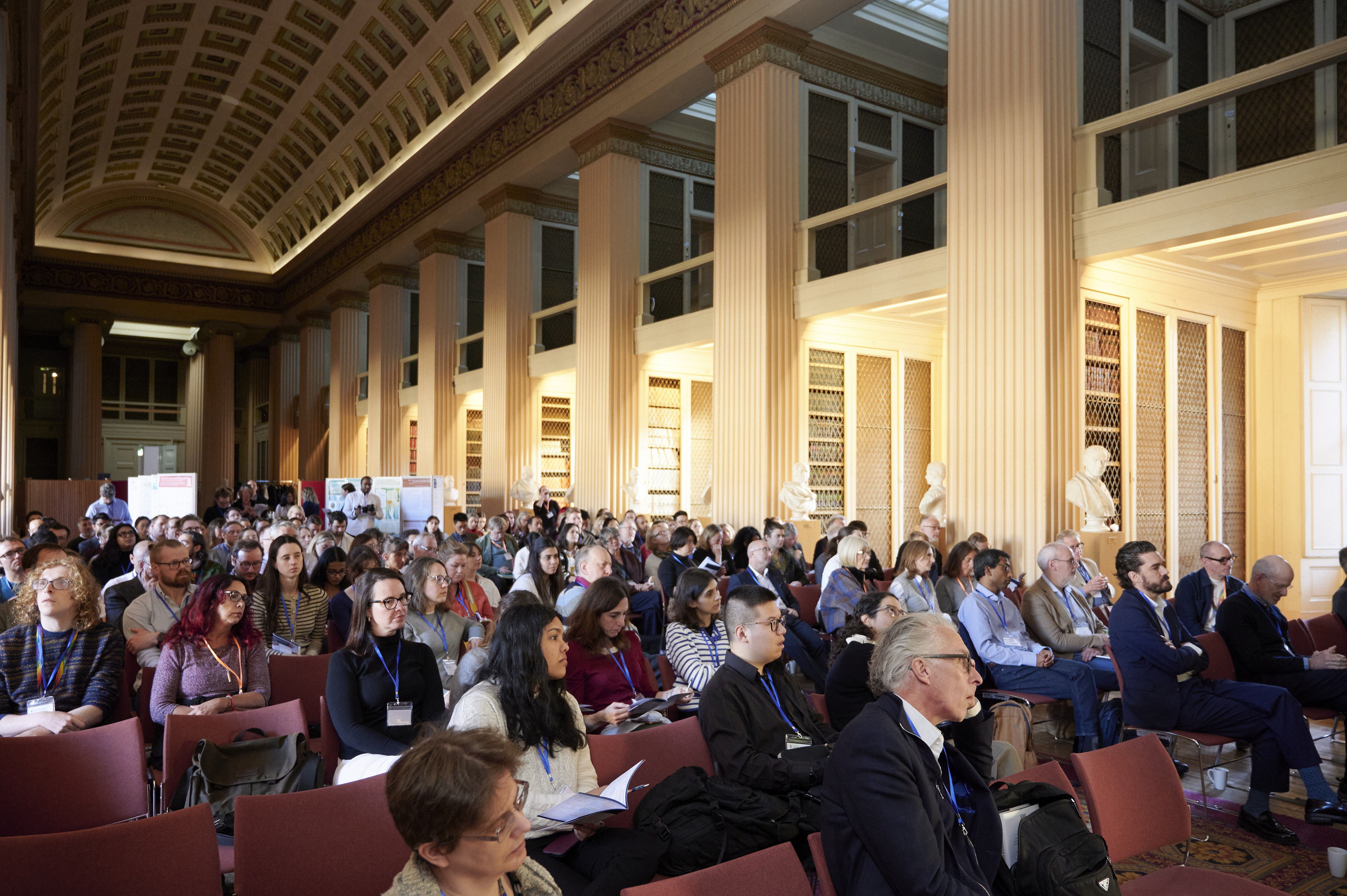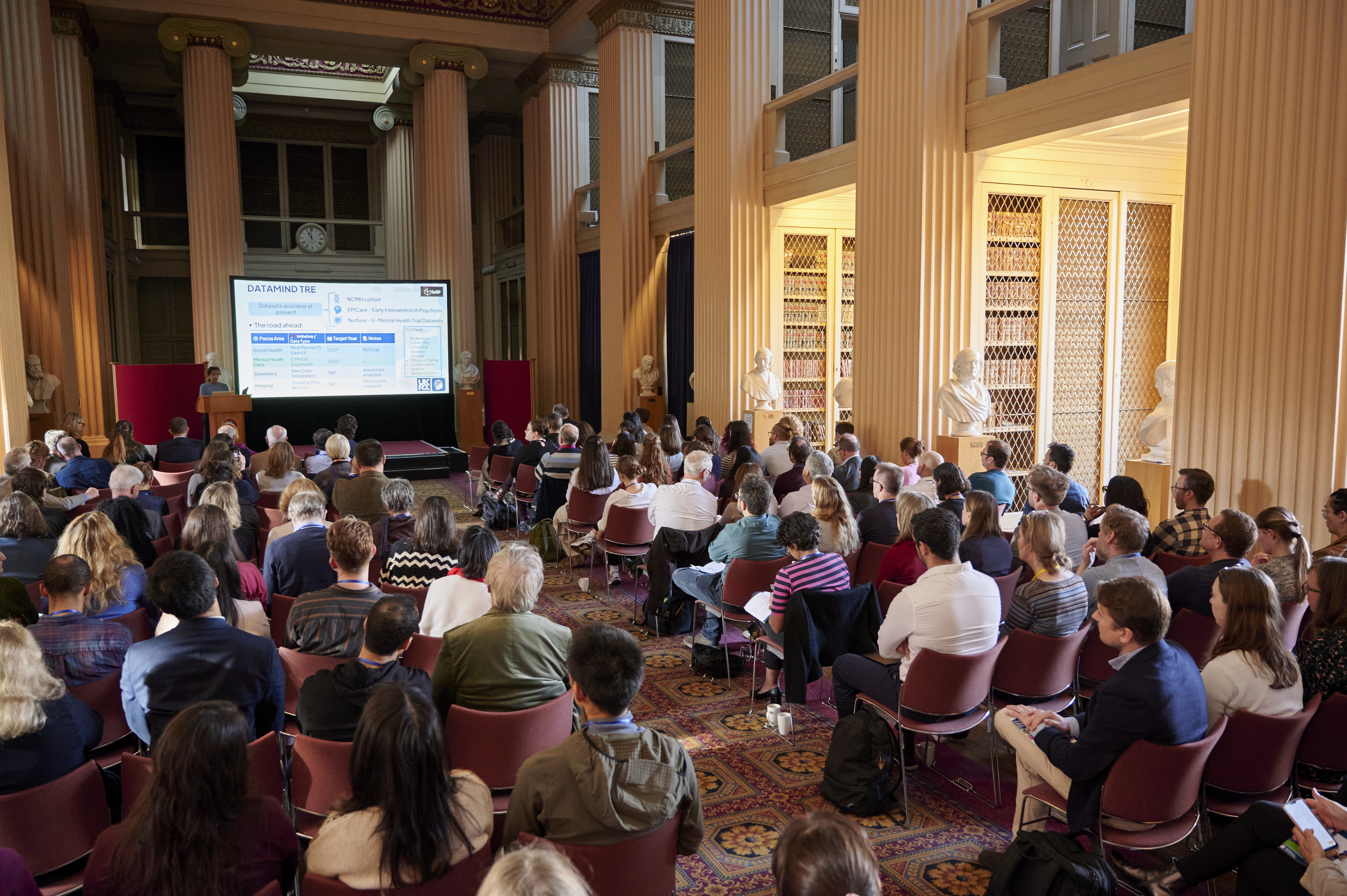
Author name:
Soumita Ramesh, PhD Student
Institution name: Brain & Genomics
On World Mental Health Day, PhD student Soumita Ramesh joined other researchers, clinicians, students, and people with lived experience of severe mental illness at the Playfair Library Hall in Edinburgh for the Metal Health Platform Research Summit. We asked her what everyone was talking about at the event.
The theme of “Collaboration” was truly at the forefront of the summit.
I had the incredible opportunity to attend the UKRI Mental Health Platform (MHP) Research Summit 2025 in Edinburgh on World Mental Health Day. The summit was truly a delight for any academic as it brought together researchers, clinicians, and individuals with lived experience with the collective goal to advance our understanding and provide better treatment of severe mental illness (SMI). As a PhD student at the Brain and Genomics Hub, my research focuses on understanding the neurobiology of iron dysregulation and its clinical manifestation across psychosis spectrum disorders.
In today’s day and age, there is a real push towards precision psychiatry and a need to move beyond the one-size-fits-all approach and an initiative like this really keep the need of the hour at its heart. And, the summit highlighted just how interconnected and distinct various approaches in psychiatry can be.
The summit brought together researchers from different fields and the six different Hubs. The directors of each of the hubs presented the exciting cutting-edge work happening in each of the hubs. As someone whose research sits in the nexus of neuroimaging, genetics and psychiatry, hearing talks and engaging in panel discussion beyond my scope of work was really fascinating.
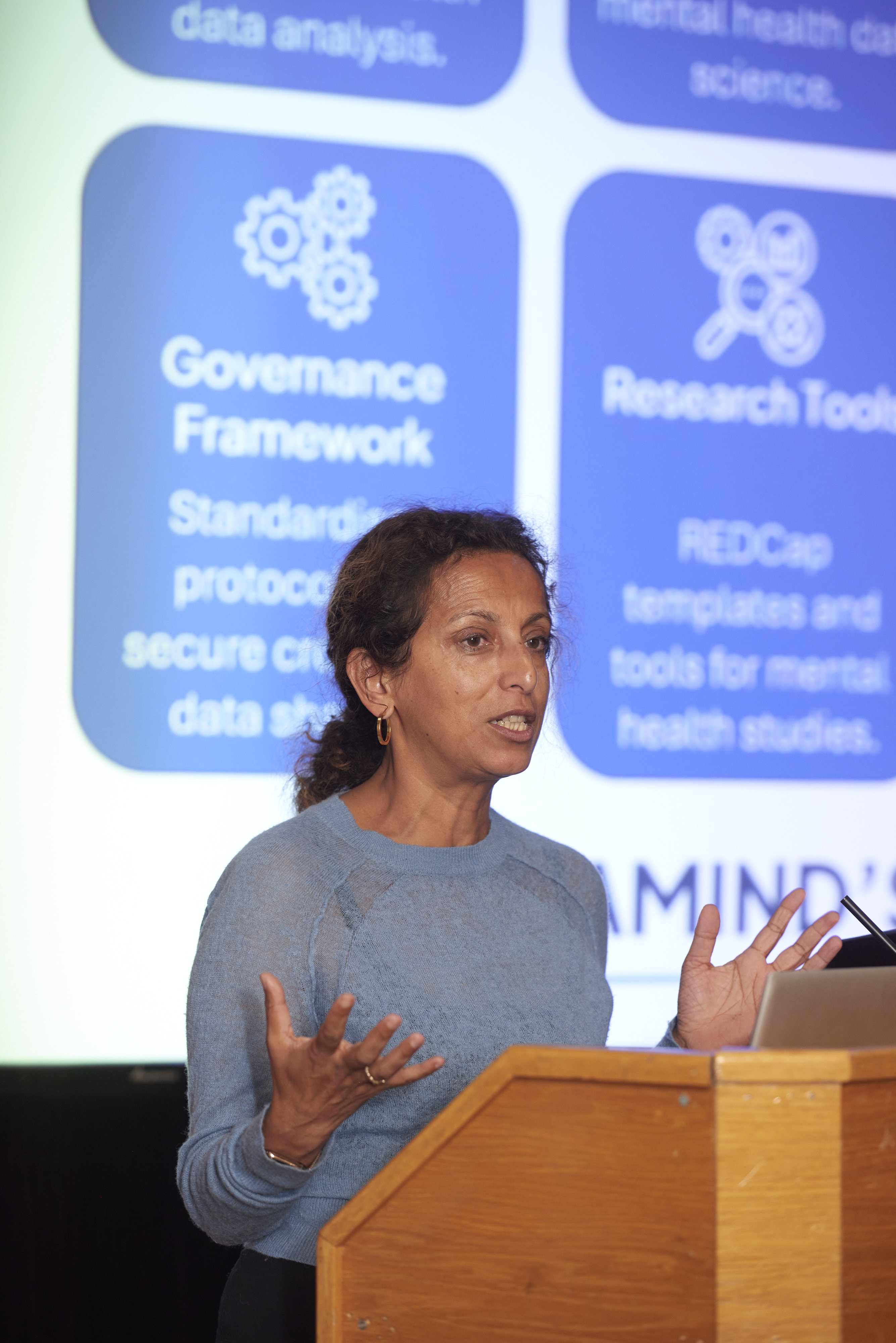
Another interesting session was the AI and digital mental health panel. The presenters did not just highlight technical capabilities but also addressed the challenges in predictive modelling, and how public patient involvement can reduce research waste and improve the applicability of these models.
Panellists also spoke about the importance of building safe, effective and trustworthy models that align and develop on current epidemiological understanding and clinical research practices. This showed me different ways in which we can pool in our expertise and datasets to create meaningful, precise and personalised treatments plans which improve the outcomes of people living with severe mental illnesses.
The MHP, MQ and DATAMIND also organised an Early Career Researcher (ECR) workshop on Proteomics and Mental Health, which took place the day before the Summit. Attending both the events opened the doors to a host of new scientific areas of psychiatric research – many unfamiliar to my own background. The breadth of topics covered set the base for promising future interdisciplinary partnership in mental health.
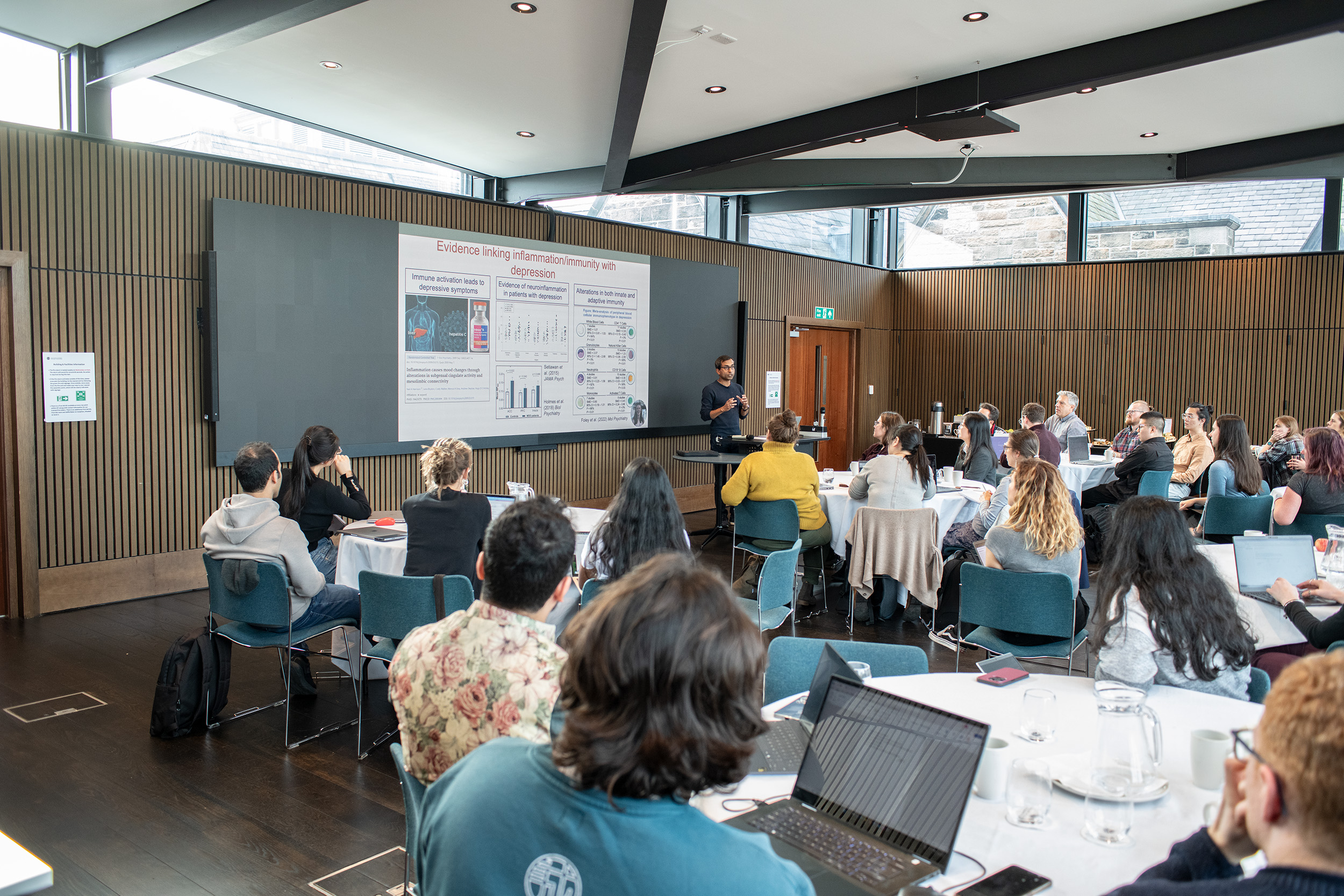
The Research Summit made me think about where mental health researchers are already collaborating, and where they can build new collaborations.
Integrative Models: Working with big data is a hot topic in psychiatry. The workshop and the sessions sparked conversations about how to harmonise data spanning across neuroimaging, genomics, electronic health records and real time digital phenotyping. As researchers, finding common frameworks and building a large dataset which is quality controlled breaks analytic silos and builds an invaluable resource for future researchers.
It was really nice to see how the field is adapting with the technological disruption that surrounds us. There was a real appetite for developing platforms and datasets in line with “FAIR” which is Findable, Accessible, Interoperable and Reusable data principles which are ready for the next generation of AI tools, with genuine inputs from experts, clinicians and people with lived experience.
Mechanism meets Context: All the talks circled back to the central theme of bridging the gap between understanding of mechanistic pathways, such as proteomics, genomics and gene-level imaging, and a grasp of social determinants.
The most inspiring aspect was the summit’s bringing to light the “unknowns” - acknowledging where social, technical and translational understanding lacks and inviting early career researchers like me to help chart new common ground. From building safe AI models, working with big multi-modal data to centring lived experience, it is clear that collaboration is vital for future breakthroughs.
The challenge and opportunity lie in turning these cross-disciplinary ideas into meaningful research avenues that is both impactful and reflective of the communities it aims to serve. As an early career researcher myself, I feel like this is the best time to be involved with psychiatric research which is not only rapidly developing but more importantly moving towards a collaborative approach that is sustainable and highly effective.
